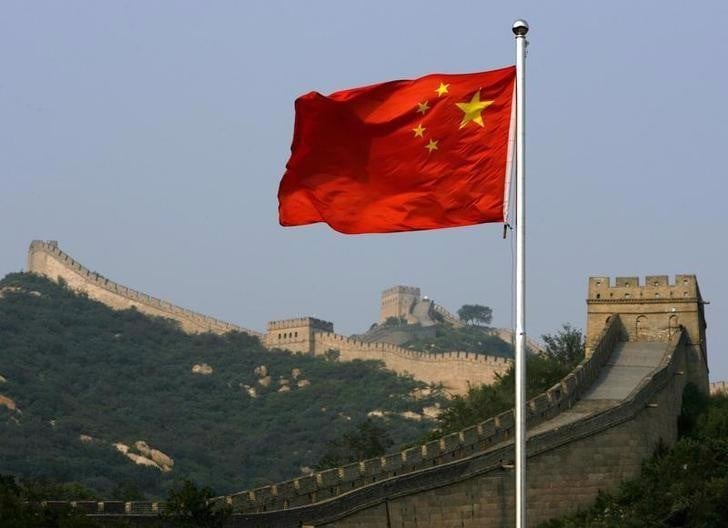 |
| China's economic data for August showed 'slight improvement'. (Source: Reuters) |
Is the worst over?
Industrial production, which measures output from sectors such as manufacturing and mining, rose 4.5% in August from a year earlier, data released by the National Bureau of Statistics (NBS) showed on Monday. Retail sales, a gauge of consumer spending, rose 4.6% from a year earlier, also up from a 2.5% gain in July.
Industrial production rose 4.5% in August from a year earlier, better than the 3.9% forecast and faster than the 3.7% increase reported in July. In that category, equipment production rose 5.4% from a year earlier. Output of solar panels and service robots jumped more than 70% from a year earlier.
The NBS release of August data on China's economy showed "slight improvement".
The agency informed: “The economy has shown good recovery momentum and positive factors have accumulated. However, it should be noted that many unstable factors in the external environment still exist.”
According to CNN , there is much evidence that the two-year real estate crisis in the world's second largest economy is far from over.
Sino-Ocean, a major state-backed property developer, said it would suspend repayments on overseas loans, a sign that the ongoing property crisis could continue to weigh on China’s economic growth.
Fixed asset investment - which includes infrastructure and construction - grew 3.2% in the first eight months of this year from a year earlier, slightly weaker than the 3.4% growth in the first seven months of 2023.
According to NBS, real estate investment fell 8.8% in the first eight months of the year compared to the same period in 2022. Real estate sales by floor area also fell 7.1%.
The agency’s spokesman, Fu Linghui, said the property market is still in a “correction” phase and has seen a decline in sales and investment. He said the sector will recover as recent policies introduced by the world’s second-largest economy take effect.
Moody's on September 14 downgraded its outlook for China's entire property sector, citing a decline in home sales and continued concerns about the industry's performance.
However, Larry Hu, chief China economist at Macquarie Group, said the worst may be over for the world's second-largest economy, which is struggling with weak export demand from global markets and its worst-ever property slump.
“Going forward, overall growth figures could improve thanks to policy support and underlying impacts,” he stressed.
Oxford Economics chief economist Louise Loo was also optimistic: "The latest industrial production and services figures suggest the world's second-largest economy could grow by 5.1% this year."
Measures to revive growth show signs of success
Commenting on the latest Chinese data, Stephen Innes, managing partner at SPI Asset Management, said: “There is a growing sense of optimism among a group of investors who believe that Beijing’s recent initiatives to stimulate the economy and stabilize financial markets are showing signs of success.
“It is necessary to be cautious. China is still at the early stage of the process and one month of positive data is not enough to confirm a sustainable recovery path.”
China's economy has been in a slump since April, when strong growth momentum from the start of the year began to fade. Since then, the government has introduced a series of measures to revive growth.
For example, in the stock market , the China Securities Regulatory Commission (CSRC) has implemented three packages of measures to support the market, including a 50% reduction in transfer tax on stock transactions and a reduction in the deposit ratio for margin financing, thereby reducing transaction costs for investors.
The CSRC also pledged to optimize the initial public offering (IPO) process toward a more balanced direction, while tightening regulations on major shareholders selling shares to protect retail investors.
In the real estate market , Chinese officials have proposed that local leaders remove regulations that do not allow people who have bought houses on installments to be considered first-time homebuyers in major cities.
On consumption , more than 10 Chinese government agencies have outlined plans to boost consumption, from home appliances to furniture. Local authorities are encouraged to help people renovate their homes. Credit will also be provided to help people buy furniture.
Regarding private enterprises, the National Development and Reform Commission (NDRC) said it will promote a mechanism to record and reduce improper actions by state agencies toward private enterprises, such as late payments or violations of procurement and bidding contracts. This move is aimed at improving the business environment for private enterprises.
The NDRC also pledged to increase lending and extend other capital support policies for small businesses. It encouraged companies to invest in key industries such as transportation, water, clean energy, advanced manufacturing and modern agricultural equipment. Local governments have released a list of more than 2,900 projects worth 3.2 trillion yuan ($445 billion) that businesses can invest in.
Most recently, on September 14, the People's Bank of China (PBOC) unexpectedly lowered the reserve requirement ratio for most banks by 25 basis points, in order to support economic recovery and improve liquidity in the financial system. The last time the PBOC cut the reserve requirement ratio for most banks was 25 basis points in March 2023.
Chinese Foreign Ministry spokesman Mao Ning asserted that China's economic growth is "strong and resilient".
“All sorts of comments predicting the collapse of the world’s second-largest economy still pop up from time to time. The Chinese economy will remain the main engine of the global economy,” she stressed.
Source












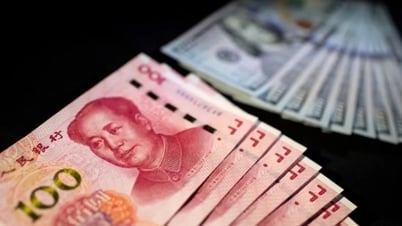
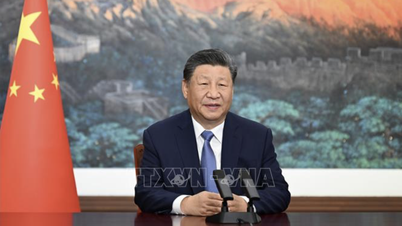







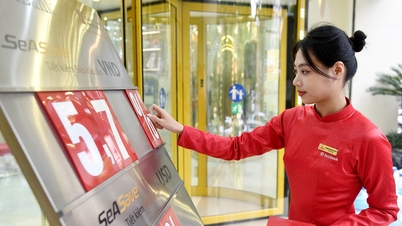

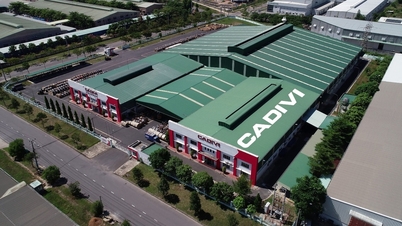
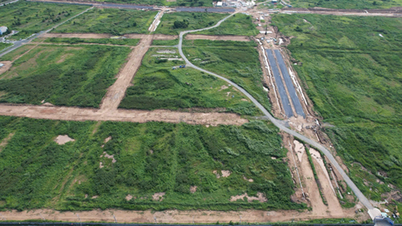
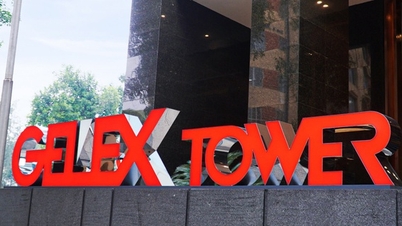
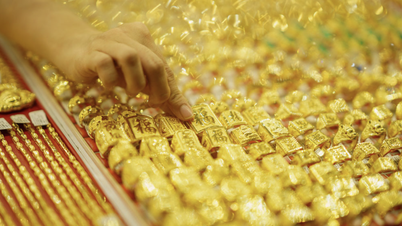





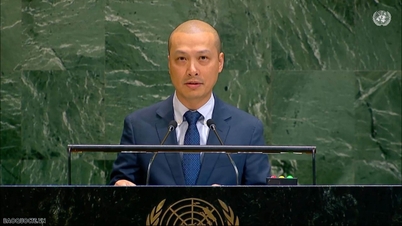































































Comment (0)